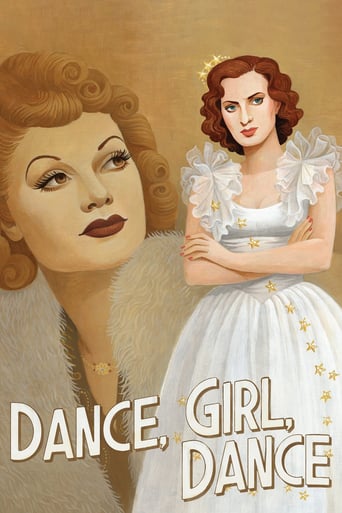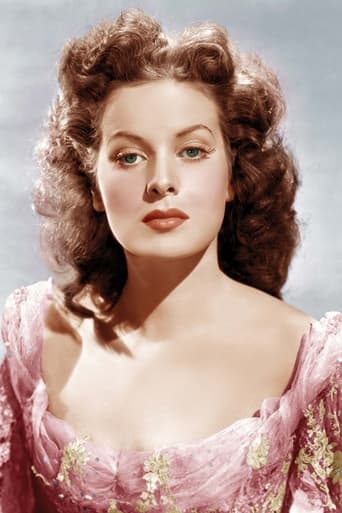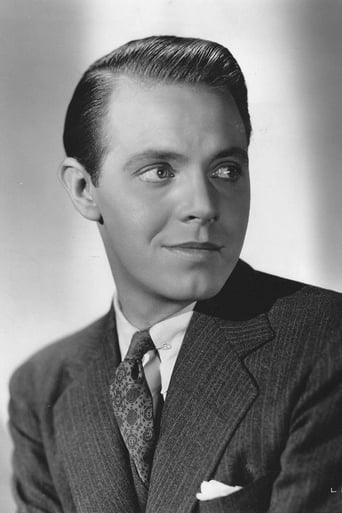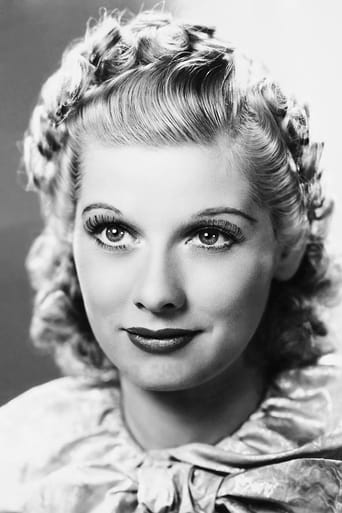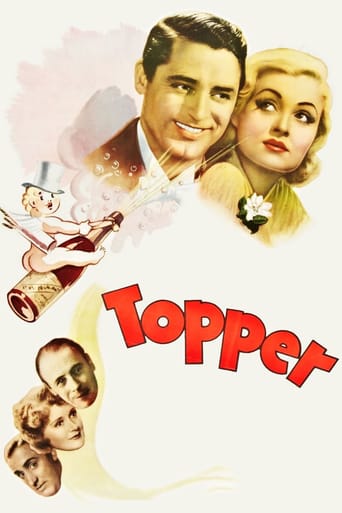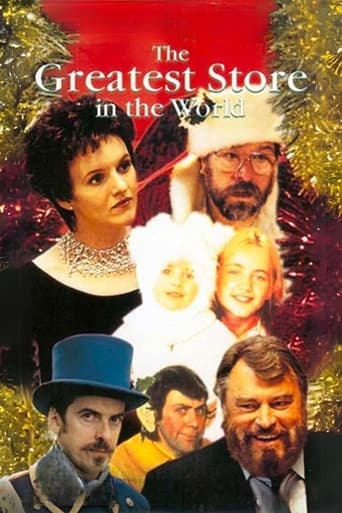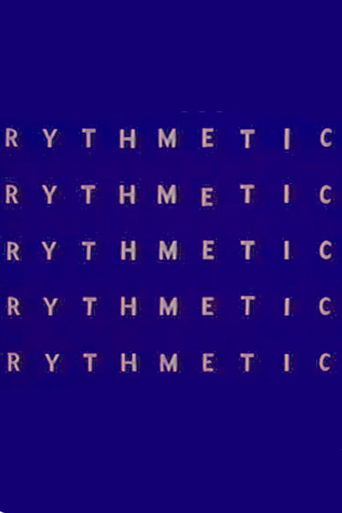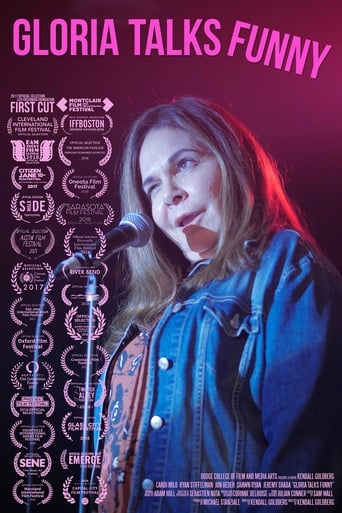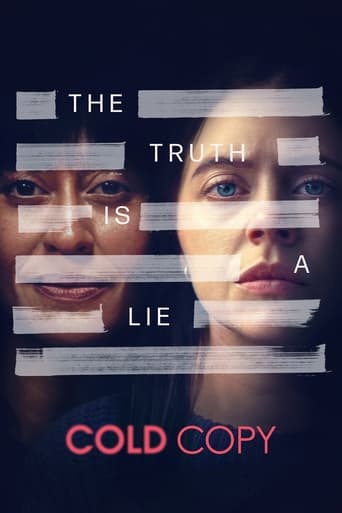Dance, Girl, Dance (1940)
Judy O'Brien is an aspiring ballerina in a dance troupe. Also in the company is Bubbles, a brash mantrap who leaves the struggling troupe for a career in burlesque. When the company disbands, Bubbles gives Judy a thankless job as her stooge. The two eventually clash when both fall for the same man.
Watch Trailer
Free Trial Channels
Cast


Similar titles
Reviews
What a waste of my time!!!
a film so unique, intoxicating and bizarre that it not only demands another viewing, but is also forgivable as a satirical comedy where the jokes eventually take the back seat.
There are moments that feel comical, some horrific, and some downright inspiring but the tonal shifts hardly matter as the end results come to a film that's perfect for this time.
One of the most extraordinary films you will see this year. Take that as you want.
Having just watched "The Big Street", released by RKO 2 years after this 1940 film, I couldn't help noticing that both films were dramas including the marital designs of a superaggressive, heartless, gold digging prima dona theatrical singer or burlesque queen, played by Lucille Ball. The main difference in the plots of the two films is that, in the present film, Lucy, representing low class dancing talent, is scripted as a bad girl to Maureen's good girl image, representing high brow dancing, especially ballet. In "The Big Street, Lucy's character is the only main female character, becoming permanently crippled early in the film. In a sense, she is both good and bad, mainly the latter, usually acting arrogantly or complaining to everyone. Yet, she is worthy of some sympathy, as a successful Broadway night spot entertainer, who is rendered crippled in a spat of jealousy by her gangster boyfriend. In the present film, the two female stars are often friends, but are also jealous of each other because of their different dancing personas, and their competition for matrimony to a rich playboy drunk(Jimmy), who is nice to the girls. There is also a 3rd woman involved: Jimmy's recently divorced ex-wife,played by Virginia Field. She will come into prominence in the confusing final portion of the film.Judy(Maureen) has struck up a friendship with Jimmy, but when Lucy(Bubbles or, later, Tiger Lily) learns that he is rich and divorced, she manages to get a marriage license out of him while he is good and sauced. He doesn't even like her. Judy is jealous and has a cat fight on stage with Tiger Lily, getting the best of her.While this is primarily a drama about the problems of surviving in the commercial world when your primary interest is in serious dance, it does have its comedic moments. Besides the afore mentioned cat fight, Maureen is funny in night court, with her unexpectedly candid answers to the judge's questions relating to the cat fight. Tiger Lily gets Judy a dancing job as her stooge between her own performances. But the raucous patrons only jeer at her conservative dancing style and relatively cool demeanor, whereas they cheer for Tiger Lily's sexy performances. But, at least she is surviving and being paid more than her previous job as a chorus girl in a dive. Judy eventually comes to realize that Jimmy, with his drinking problem, would not make an ideal husband for her. In the end, she realizes that Steve(Ralph Bellamy), whom she just found out apparently is the director of a Broadway theater troupe, is very impressed with her potential, and appears to be a very nice man. He bailed her out of jail, and offers to train her to be a classy Broadway dancer. Clearly, he loves her, but we have no idea whether he is married or interested in her as a wife, despite the parting scene in the film.This film, appropriately, was directed by the only Hollywood female director during Hollywood's "Golden Age": Dorothy Arzuer. This was her next-to-last film. While some interpret it as being pro-women's lib, I can think of various films from that era and the '50s that were much more so.
The Lucille Ball of "Dance Girl Dance" is a mean, nasty character-Selfish, vindictive, and quite trashy. While Lucy wasn't so nice in "The Big Street", you did understand the selfish nightclub singer she was playing, and you got to see her repent. Here, Lucy does not repent; She just gets meaner and meaner. That would be O.K., but the storyline surrounding her is totally absurd. Maureen O'Sullivan is the top billed star of this drama with a few musical numbers thrown in. She is a chorus girl in a gambling joint that is busted, leaving her and fellow dancer Lucy out of a job. O'Sullivan wants to become a ballerina, and returns to the troop run by the very masculine Maria Ouspenskaya, seen in a man's suit, much like the film's director, Dorothy Arzner. Ball becomes the star in a burlesque show, and in her effort to help out former roommate O'Sullivan has her hired as the "stooge" in her act---a classy dancer that will get the audience booing and begging Ball's "Bubbles" to return. The act is a hit (with the on-screen audience, not the viewer), and Ball ascends to stardom while O'Sullivan makes money becoming a huge joke. As O'Sullivan gets some off-stage publicity, Ball becomes vindictive, and before you know it the two are getting into it right in front of the audience.This ridiculous set-up expects us to believe that a burlesque show like this could be a smash hit and pack in high society. Yes, there were burlesque shows on Broadway in the 1940's ("Sons O' Guns", "Star and Garter"), but those were the few and the exception, classy all-star revues with a variety of acts, not just burlesque. The fact that this gets so ugly with its boring oh-so-sweet "Butter wouldn't melt in her mouth" heroine, and the vicious Lucy really defys reality. Ball's first big number, "My Mama Told Me There'd Be Days Like This" is alright, but the other numbers are poor, and the sight of the unfortunate O'Sullivan fluttering around like a ballerina is silly as well. Louis Hayward and Ralph Bellamy are the poor unfortunate men involved in this mess which only comes alive in the fight scene between the two women. I must admit though while watching Lucy's strip number, I fantasized about her character in "The Fuller Brush Girl" coming out afterwards with her overlong eye lashes and strange hoochie coochie dance to get the audience riled up even more.
This confused film appears to be made from the traditional "Girl's Own" type story, butchered inexpertly to make a marketable film.Maureen O'Hara plays the heroine, a "Grade A" pill, who weeps and bawls her way through the film, performing as a ballerina (badly !) at a burlesque show in contrast to the main act (Lucille Ball as "Tiger Lily").Like all these girl's stories, it begins when a good person is run down by a tram (sorry, a bus this time). The raucous burlesque show scenes fit badly with the "poor but innocent girl" story and the wonderfully daft (contemporary) interpretative ballet company acts.Both dancers vie for the affections of a playboy - who frankly is a bit of a dope - and the traditional ending has been altered to give the "good girl" a happy (sort of) ending.
Dance, Girl, Dance, which sounds like a Joan Crawford movie, is not. It features superb dance sequences which exemplify the superior ballet technique and style of the '40s. Vivian Fay is outstanding. Lucille Ball is hot, girl, hot! Who knew our Lucy could be a burlesque queen and skillful dancer, not to mention Maureen O'Hara dancing her socks off with fine ballet technique. I don't think they used a dance double, or did they? I hope not. But who is this choreographer, hitherto unknown? What became of him? He did an excellent pastiche of Leonid Massine's ballets. Why do we have to write so many lines? Don't they know that pithy comments can say so much more? I think the movie dragged as it got soapy, but the emotion was convincing, and I could personally relate to the story of the ballet teacher very much. I had one just like her.

